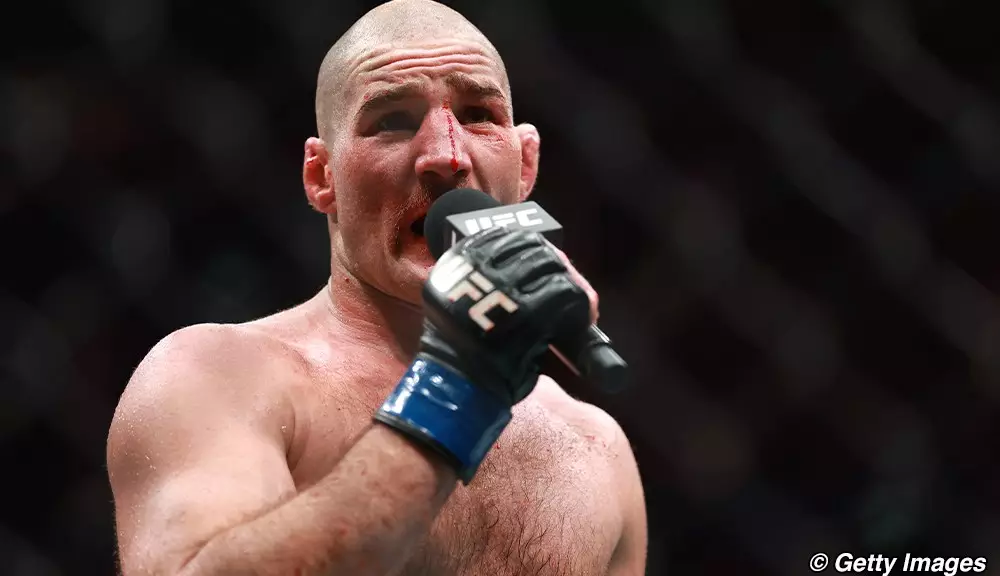In the high-stakes arena of mixed martial arts (MMA), not every battle ends in victory, but every athlete’s journey elucidates a story of resilience, struggle, and development. Recently, Sean Strickland, a notable figure in the UFC, found himself under fierce scrutiny following his loss to Dricus Du Plessis at UFC 312. Instead of joining the chorus condemning Strickland, two prominent UFC Hall of Famers displayed a refreshing sense of understanding and support.
In the aftermath of his unanimous decision defeat, Strickland faced a wave of negativity from various corners of the MMA community, including analysts, fans, and fellow fighters. It’s all too common in combat sports to witness the rapid transition from hero to villain after a setback, a phenomenon that can overshadow the nuances of the fight itself. Daniel Cormier and Chael Sonnen, however, have taken a different route, offering a more balanced perspective on Strickland’s efforts in the octagon.
Cormier emphasized the nature of competition and illustrated that the expectations set before a fight don’t always align with reality. Losing is an inherent part of sports, and Cormier’s comments highlight the unpredictable and often brutal nature of MMA where defeat can arise from a simple mismatch in skill or a poor performance on any given night. His reminder that “sometimes it just doesn’t f*cking work” resonates deeply in a sport where conditions can change drastically in a matter of seconds.
Sonnen chimed in to dissect Strickland’s performance further, underscoring the physical and mental toll that injuries take during fights. Notably, Strickland fought with a broken nose, significantly undermining his capacity to effectively engage with Du Plessis. Sonnen did not shy away from detailing the true agonies associated with such injuries, describing the immense pain of a broken nose, likening it to the struggles of any athlete when faced with bodily failures.
This line of reasoning resonates with compassionate fans who understand that what looks like a failure on the scoreboard is often overshadowed by immense courage in the face of adversity. Strickland chose to continue fighting, risking further injury and enduring prolonged suffering rather than exiting the bout prematurely.
In the critiques of Strickland’s performance, it is crucial to not overlook the talent and skill of Dricus Du Plessis, who demonstrated superior technique and fight strategy throughout the match. Cormier and Sonnen’s defense of Strickland extends beyond merely shielding him from criticism; it serves as a reminder that losing should not lead to denigration, especially when the opponent showcases prowess that merits acknowledgment.
Sonnen articulated this notion well by emphasizing that the outcome was not just a failure on Strickland’s part but also a testament to Du Plessis’s skill. It’s a vital reminder in the world of sports that one competitor’s achievement should not come at the cost of another’s worth. Du Plessis’s victory is commendable, exemplifying that in a one-on-one combat situation, only one fighter can emerge victorious yet both represent their respective teams and legacies.
The aftermath of UFC 312 serves as a prime opportunity for reflection within the MMA community. Criticism can be harsh and unforgiving, but it’s essential to remember that behind every athlete is a human being fueled by passion, ambition, and vulnerability. Sean Strickland’s journey in the octagon, highlighted by this recent bout, underscores the trials of competition and the lessons that can be derived from adversity.
Cormier’s and Sonnen’s supportive narratives remind us that loss doesn’t solely define an athlete. Instead, it highlights their capacity to endure and fight through pain and challenges. The ultimate goal of sport is growth, both as a competitor and as an individual. In the world of MMA, as in life, it is the ability to rise after a fall that truly defines a fighter.

